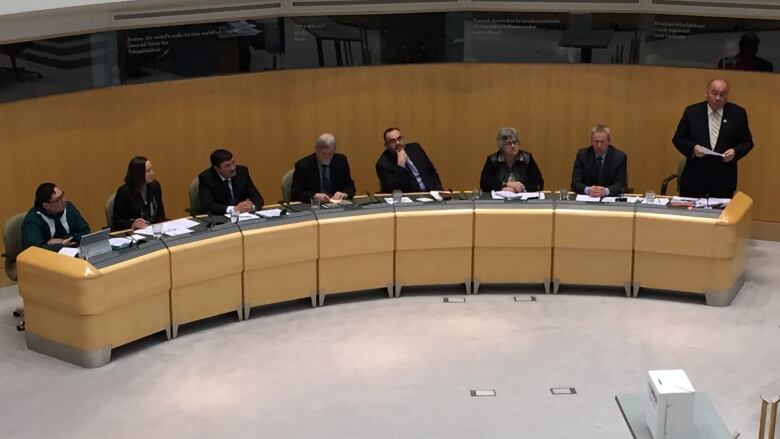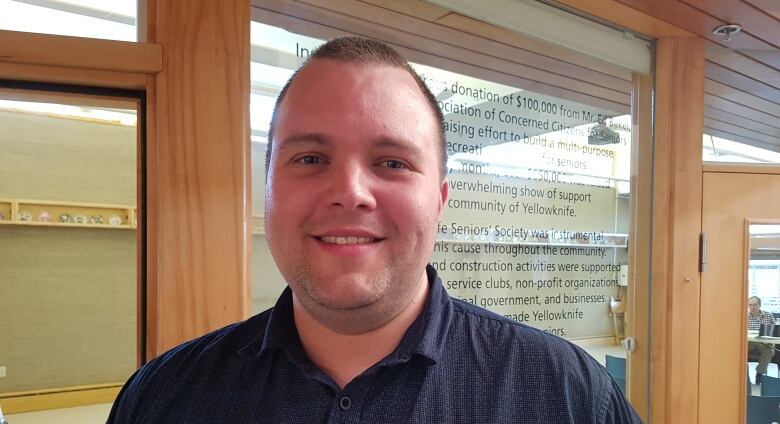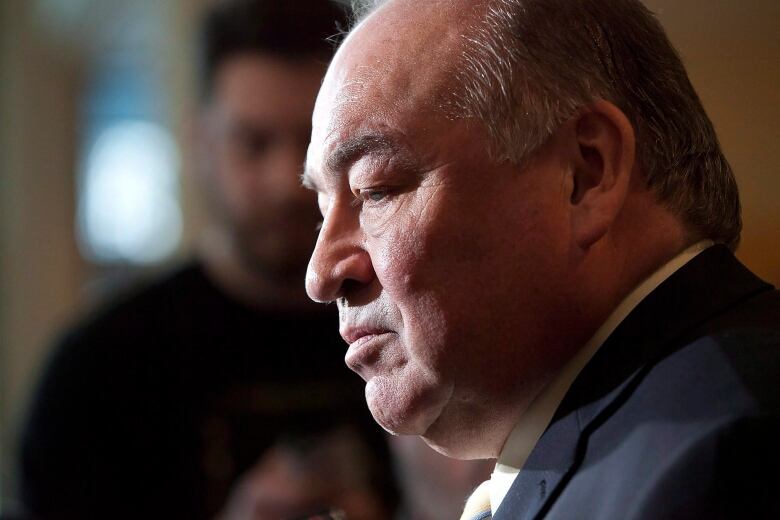Behind closed doors: slow progress toward more accountability in N.W.T. gov't
MLAs reluctant to give up the comfort of discussing public business behind closed doors

Though it has made some progress toward its commitment to become more accountable and transparent, the Northwest Territories government is still finding it difficult to let go of the comfortable secrecy that's been one of the hallmarks of consensus government.
MLAs still discuss government business behind closed doors, departments use the same cumbersome approval process that leads to weeks-long waits for even basic information, and MLAs still seem to cling to the belief that it is necessary to exclude the public to do public business properly.
That confidentiality is the default was evident last week, when the chair of the Legislative Assembly's standing committee on economic development and environment chastised the Yellowknifer newspaper for a story based on a leaked letter he had written to cabinet on behalf of the committee.

In a press release, committee chair and Yellowknife MLA Cory Vanthuyne wrote, "Confidential exchanges of information are a critical feature of Consensus Government that allow standing committees an opportunity to provide feedback to the government during the early drafting stages of the bill."
But Vanthuyne later had difficulty explaining why it was important to exclude the public from the committee's discussions around resource royalties and a new Mineral Resources Act.
"There's a lot of information at that time that doesn't necessarily require public attention, because there will be some public scrutiny opportunities later," he said. "That's a [stage]where we get to speak freely, with respect to a confidential process, in camera. It's often for the purpose of protecting the public interest."
According to figures provided by the Legislative Assembly, the standing committee on economic development and environmenthas met 23 times this year. All but three of those meetings have been closed to the public.
It's the same with other standing committees. The standing committee on priorities and planning, which is made up of all regular MLAs, met 76 times in 2017. Two of those meetings were open to the public. It has met 51 times this year, allowing the public in on three occasions.
David Wasylciw, a Yellowknife resident who maintains an online database that makes government information more accessible to the public, says standing committees like the traditions of confidentiality that are part of a parliamentary system designed for party politics, though few of the justifications for confidentiality apply in the N.W.T.'s consensus style of government.
"We're not keeping it secret from any politicians or opposition," he said."We're mostly just keeping it secret from the public."
Grade of C+ or B-

Wasylciw, who helped the government with a public consultation on open government,gives the government a C+ or B- grade on its progress toward fulfilling the commitment it made two years ago to become more accountable and transparent.
"There's the meeting registry now, where they put out who ministers have been meeting with," he said."The contracts reporting it used to be annual and it would take six months for it to come out. Now it's coming out 30 days after each quarter."
But Wasylciw points to one irony:much of the work is being done by a steering committee composed of bureaucrats whomeet in private."So all of this work on open government is happening in a not very open and transparent way."
The steering committee was formed as a result of the Open Government Policy the government introduced in January.
We're getting our message out there.- N.W.T. Premier Bob McLeod
"One of the things that would be nice is if, in annual business reports, departments had to publish what they were doing to be more open," said Wasylciw. "If everybody was actually held accountable under the Open Government Policy, you could actually see something and rate their progress."
Premier Bob McLeod is a bit more generous when it comes to grading his government's progress on becoming more accountable.
"We're getting our message out there. I think the public is becoming aware of all the good things we're doing, which we weren't doing a very good job of before," said Mcleod. "Everything was focused on the negative. I think our communications has improved significantly."
More staff, same cumbersome approval processes
McLeod points out that the government has made a serious investment in getting its message out.
"We've put a lot of resources into communications," he said."I think we've added 10 new positions in the communications field. I would think that if I had that many resources, things would speed up and we'd be able to respond in a much more timely basis."

McLeod said, in his view, a response to a simple media request would be timely if it took five days.
From records CBC obtained through Access to Information requests, it appears the departments are still using a cumbersome approval process that must be followed before the government responds to media inquiries for information.
For example, on March 27, after it was announced that Discovery Air had filed for protection from its creditors, a CBCNorth reporterasked the finance department how much of a $34 million loan the government had given Discovery was still owing. No fewer than 10 bureaucrats were involved in getting the information and drafting and approving a response, which was received April 6.
-
N.W.T. government spent $90M on sole sourcing contracts in 2014-15
-
Emails show communication breakdown over spring closure of Inuvik Tuktoyaktuk Highway
On June 13, another CBC North reporter heard the territorial government had sent a collection agency into Fort Liard to try to recoup outstanding property taxes. That reportersent an email to the finance department asking three things: confirmation that property taxes are outstanding in Fort Liard and that a collection agency was sent in to collect, the name of the collection agency, and what else was being done to remedy the situation.
Seven officials were involved in responding. A response was drafted by communications officials for approval by the assistant comptroller general. On June 25, 12 days after the request was made,it was finalized by the comptroller general for deputy minister approval.
It sat on the deputy minister's desk for a week until the deputy minister released it to the CBC and the public with an email containing one word: "Approved."
Both requests included requests for an interview, which were turned down without explanation.
With files from Alex Brockman












_(720p).jpg)


 OFFICIAL HD MUSIC VIDEO.jpg)
.jpg)



























































































